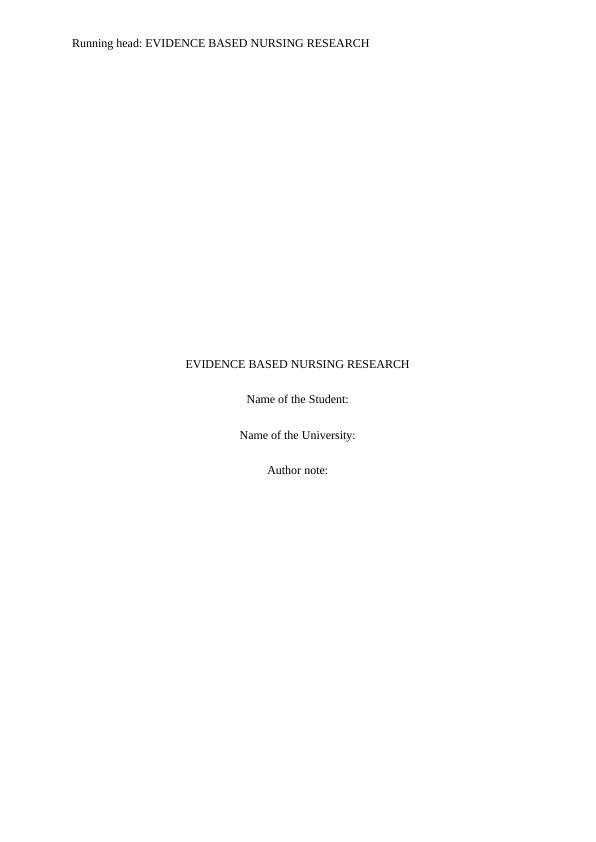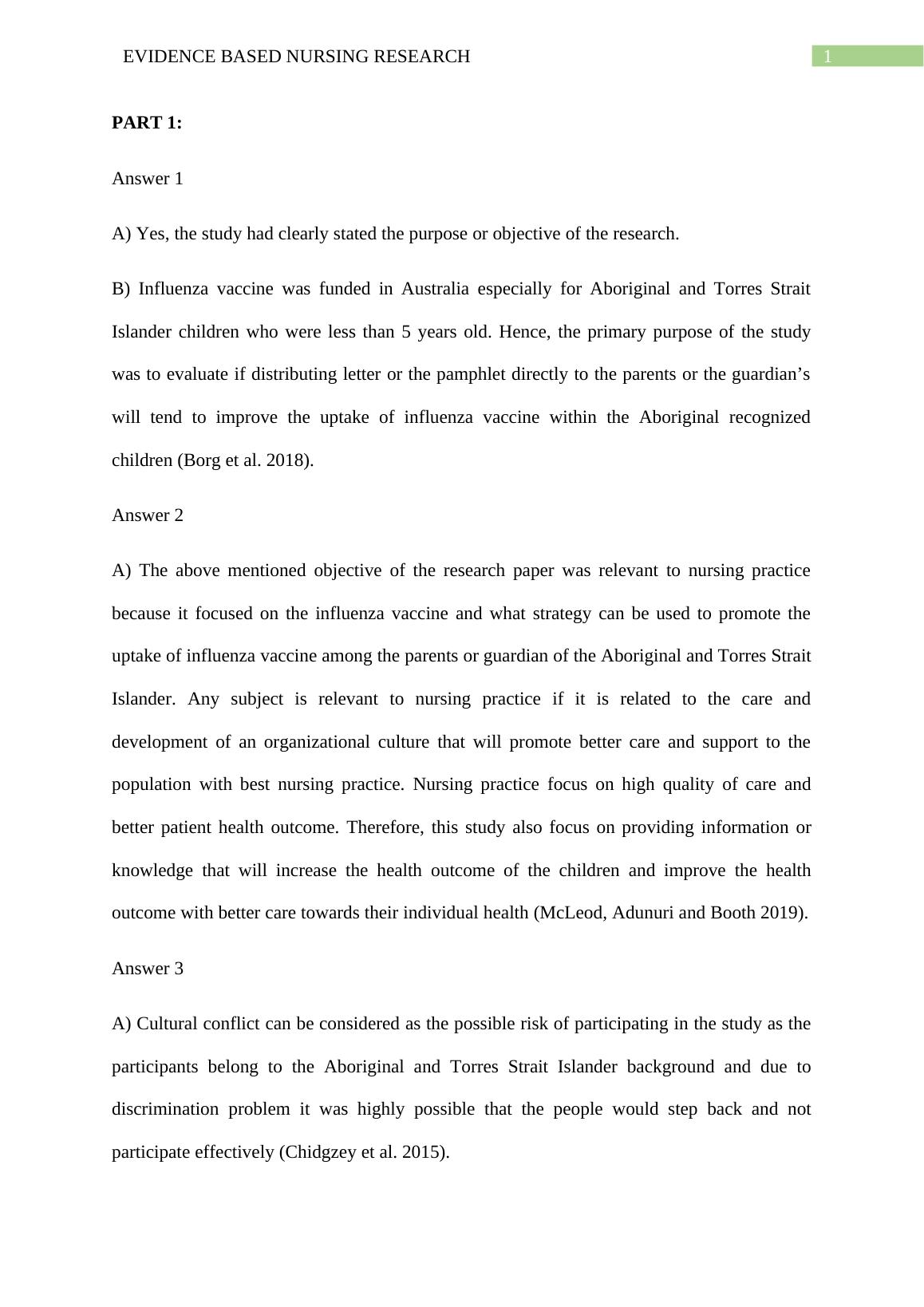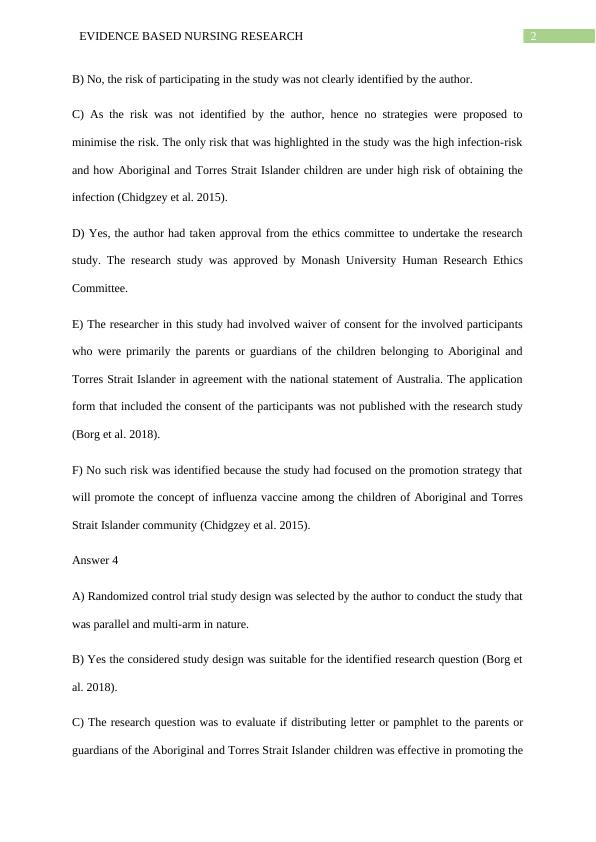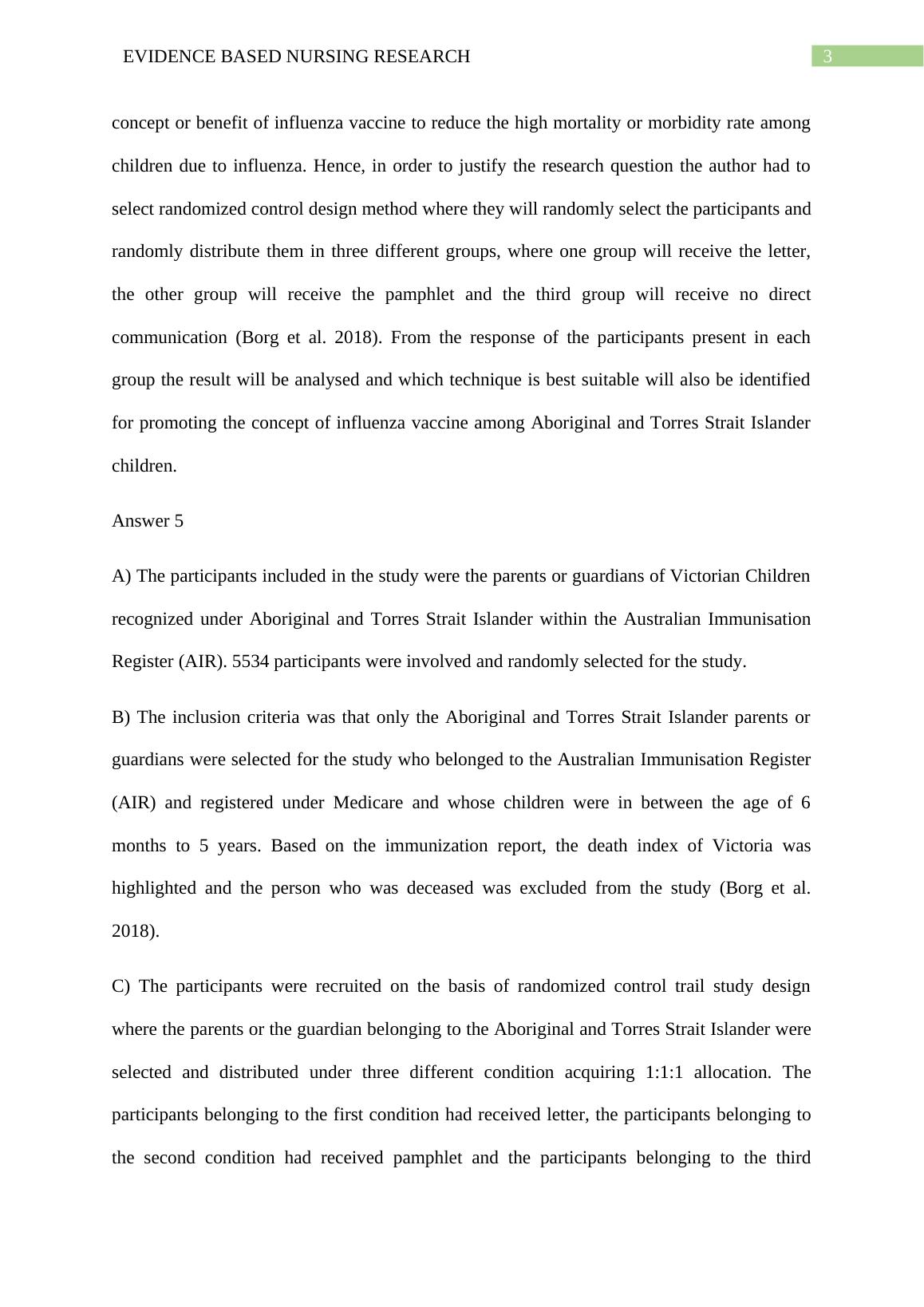Evidence Based Nursing Research
Complete a template for critiquing quantitative research based on a selected article.
12 Pages2816 Words500 Views
Added on 2023-03-30
About This Document
This article discusses the importance of evidence based nursing research in promoting influenza vaccination among Aboriginal and Torres Strait Islander children. It explores the study design, participants, intervention, and results, as well as limitations and implications for evidence-based practice.
Evidence Based Nursing Research
Complete a template for critiquing quantitative research based on a selected article.
Added on 2023-03-30
ShareRelated Documents
End of preview
Want to access all the pages? Upload your documents or become a member.
Evidence-Based Practice
|12
|3421
|31
Tool for Critiquing Qualitative Research
|10
|3795
|63
Tool for Critiquing Qualitative Research
|10
|4695
|13
Nursing Reflection on Immunization Safety for Children and Pregnant
|4
|607
|218
NUTD 9226: Public Health and Community Nutrition
|28
|7044
|85
Nursing Care Plan for a 4-year-old Aboriginal Child with Influenza and Respiratory Inflammation
|1
|647
|358




